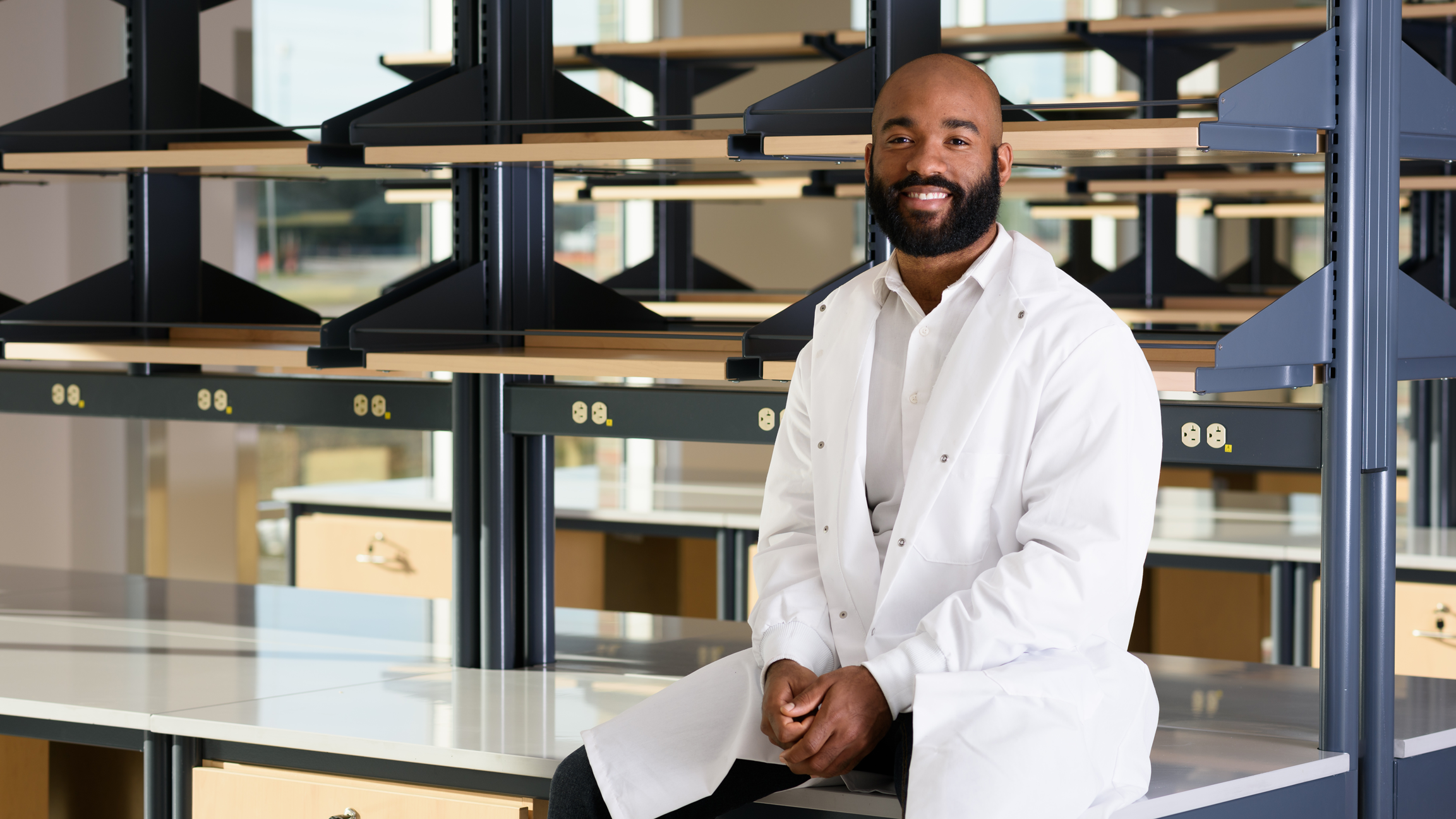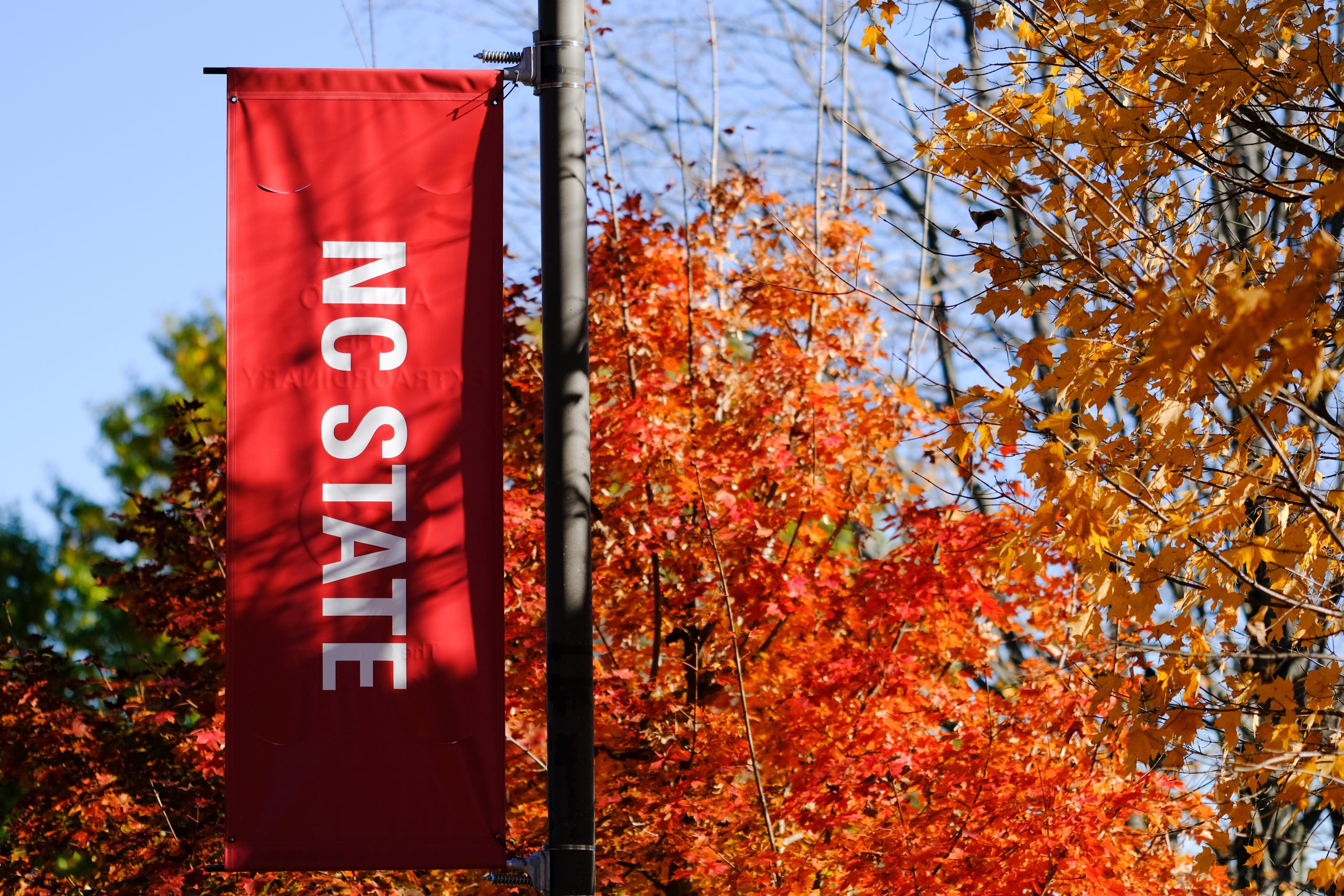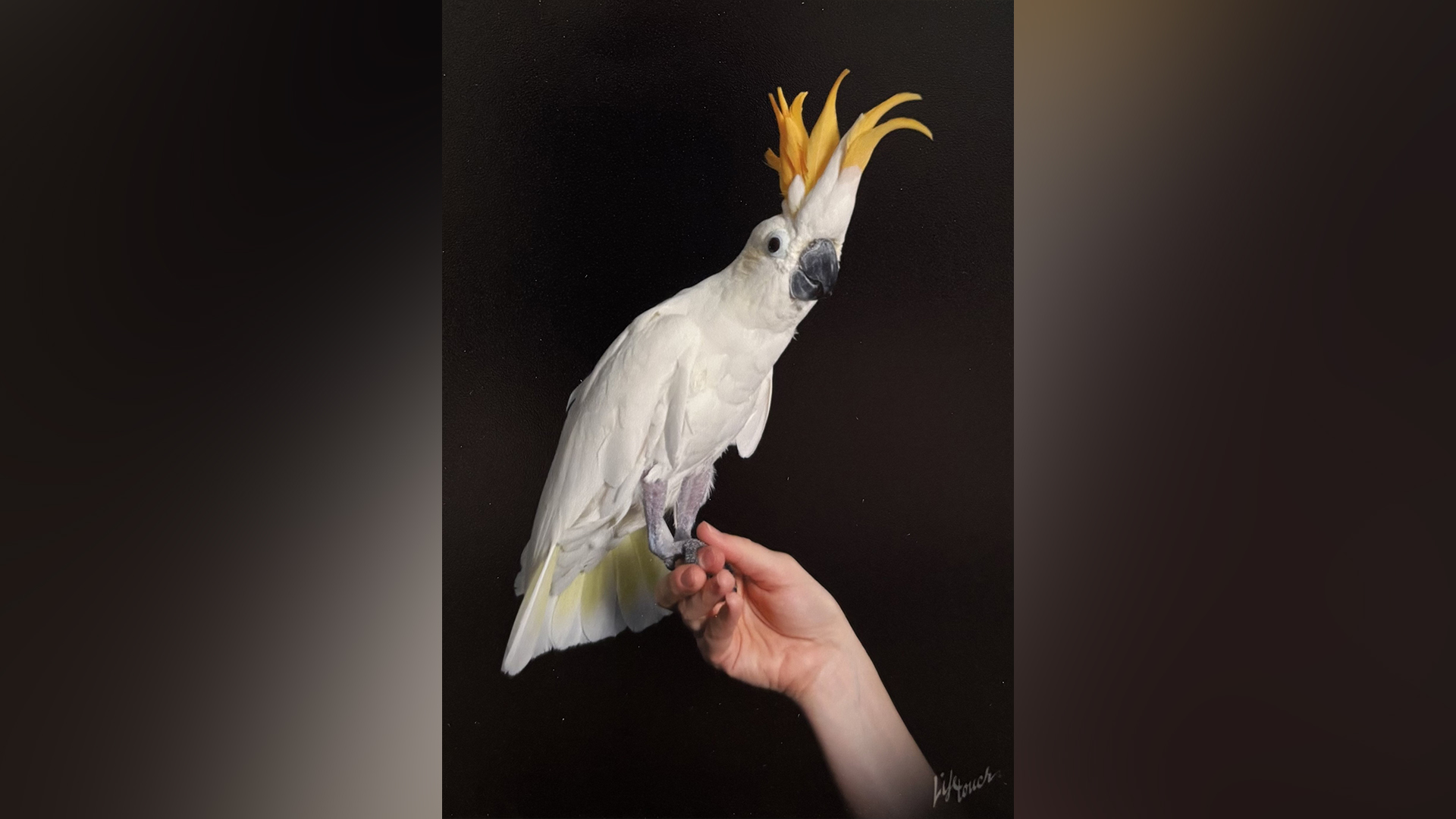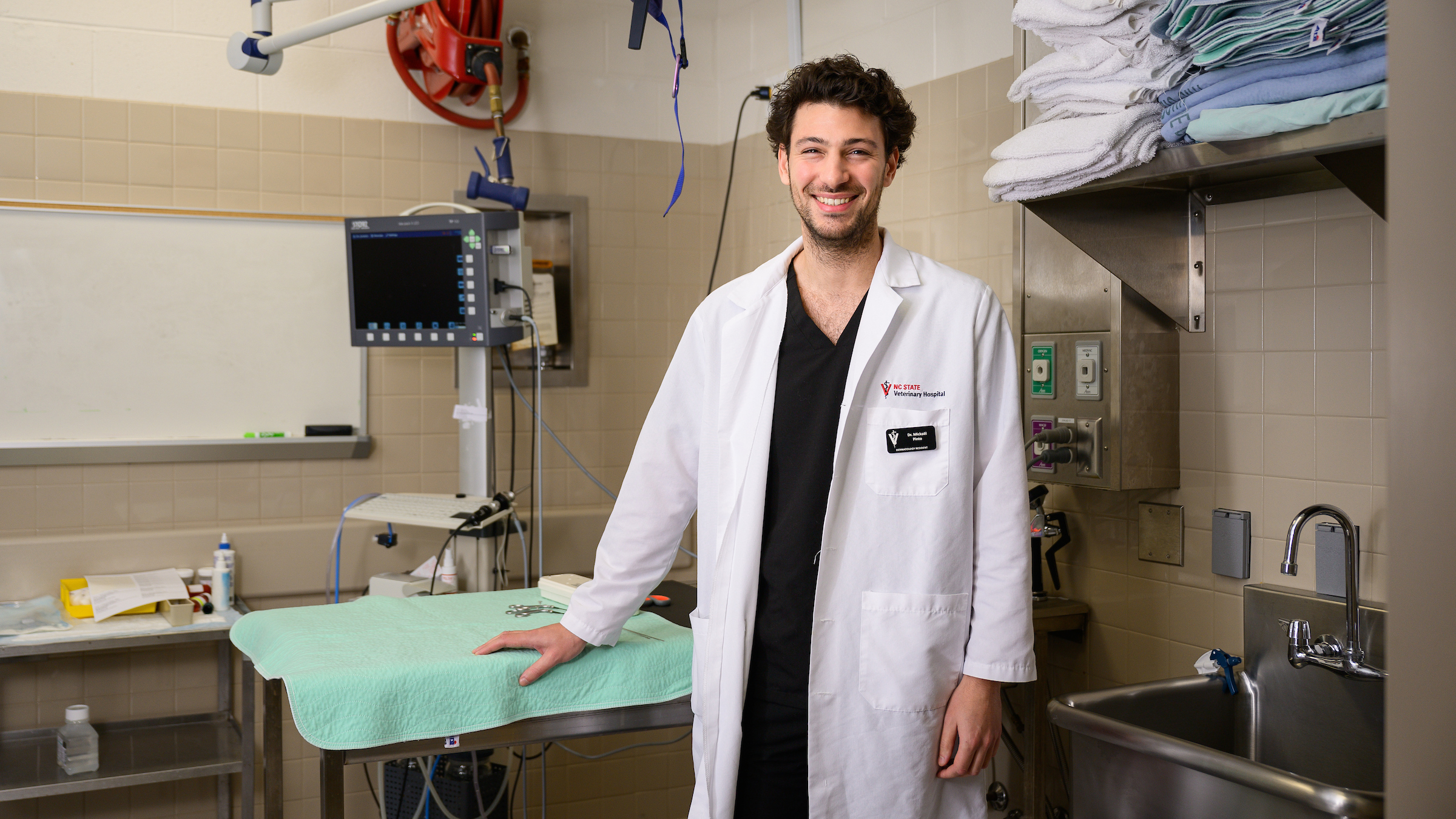CVM Grad Student Tyler Allen Lands on Forbes’ 30 Under 30 List

He always had a hungry mind, the kind of kid overflowing with questions and craving immediate answers.
Tyler Allen didn’t always get them.
“Most of the time I was saying, ‘Why? But why?’ — probably to an annoying degree to the adults around me,” said Allen. “A lot of the time my mom would explain things to me, but other times she would flip it on me and say, ‘Why do you think it happens? What can you do to find out why something is this way and how it happens?’”
That life lesson stuck. For nearly four years, Allen, who is set to earn his Ph.D. in comparative biomedical sciences from the NC State College of Veterinary Medicine in the spring, has been able to think about some of the most pressing and complex questions about cancer — and answer them.
That’s why he was just named to Forbes’ 30 Under 30 list, which highlights visionaries in 20 different industries. At 25, Allen is one of the youngest included in the “Science” category. Forbes singled him out for his research on how certain cancer and tumor cells exit the bloodstream to form new tumors, dubbed the cancer exodus hypothesis.
It’s a groundbreaking finding that could pave the way for more effective stem cell therapies and early detection of when cancer spreads.
“There was something so appealing to me about the biomedical research being done here at the vet school,” said Allen. “There’s still a lot that we don’t know about diseases, especially cancer. And here we get to help with that.”
Allen, who joined the lab of CVM associate professor of regenerative medicine Ke Cheng in 2014, has been involved with some of the most impactful developments in medical research during his graduate school career. He has been part of research team that has shown how to quickly generate large amounts of lung stem cells to use in treatment and developed a synthetic version of stem cells for the heart.
He is also the lead author on a recent study that discovered that therapeutic stem cells leave the bloodstream in a different way than previously thought, a process the research team termed angiopellosis and is part of Allen’s doctoral dissertation. Last year, the National Cancer Institute awarded Allen a pre-doctoral fellowship.
Allen’s insights into the ways cancer cells behave and therapeutic stem cells move are powerful weapons in the fight against cancer. In order to effectively treat cancer, we must understand its intricacies.
“The thing that interested me about cancer was that the cells are not inherently evil,” said Allen. “Cells are meant to grow and divide, so what they’re doing is doing their job extremely well, so well that it’s causing a tumor. To me, that is fascinating. It was just something I wanted to help answer: What’s going on here and what can we do about this?”
An Early Passion
Science always came naturally to Allen. He was born in Houston, the youngest of three sons and with no scientists in the family. Then, one day in middle school biology class, he looked at his cheek cells under a microscope and was transfixed.
He still vividly recalls learning about photosynthesis and genetic sequencing of cells, which he still calls, “the most amazing thing of all time.”
He’ll even pepper science facts into conversations with the same wide-eyed enthusiasm he had when he discovered them for the first time.
“Heart of Gold”, Tyler Allen
The cancer exodus hypothesis, Tyler Allen.
“Did you know that the DNA of humans and bananas share 50 percent of the same protein-coding region?” he will note, leading to a easy-going smile and chuckle.
Allen moved with his family to Raleigh right before high school; his mother, Alveda, wanted to be closer to family members in the state. When deciding on colleges, he gravitated immediately toward NC State, attracted to its biology program and it’s welcoming atmosphere, he said.
He arrived at the university with four main interests: genetics, plants, cancer and stem cells. He has been able to study all four.
During his time as an undergraduate, Allen, who had planned to primarily focus on plant biology, got his first taste of cancer research. He worked in the lab of Jon Horowitz, an NC State professor of cancer biology and assistant vice chancellor for research, who is now on Allen’s dissertation committee. While there, he studied how two cancer-related proteins interact with each other and affect cancer patients.
That experience sharpened his research focus and drew his attention to the CVM.
“There was something that was so appealing about the biomedical aspect of the research being done at the vet school,” said Allen. “I wanted to focus on an area where I felt there was already a huge need for research or that there would be an increasing need in the future. Both cancer and heart disease fall into that area. I wanted to contribute.”
Science For All
Allen isn’t what you’d call a lab person; he’s honest enough to tell you that. The science is thrilling, but there’s only so much data he can analyze and charts and graphs to do and redo before he gets a bit restless.
But the Cheng lab has been the perfect fit for nearly four years. Cheng was a new, young faculty member when Allen became the first comparative biomedical studies graduate student to join his bio therapeutics Lab.
Everything about Cheng’s lab — the pioneering stem cell research, the unique regenerative medicine focus — and the man himself appealed to Allen. After he earns his Ph.D., Allen is eager to continue a career in biomedical science.
“What I really liked about Ke Cheng is not just his research and his track record, but him as a person,” said Allen, sitting in an office at the CVM’s new, state-of-the-art, 45,000-square foot Biomedical Partnership Center. “His research is so incredibly interesting, and that drew me in, but he is truly a good person.”
And while Allen has an integral roles in much of the Cheng lab’s complicated cardiac, cancer and stem cell work, it’s the way Allen shares that work with the rest of us that sets him apart.
Always comfortable with public speaking and more of a visual learner, Allen has taken his tantalizing but complex research and made it wholly approachable and accessible. Over the years, he has created award-winning videos that convey his research with attention-grabbing visuals.
Tyler was one of the four 2017 Young Scientist Seminars Competition winners.
“When I was growing up, one of the reasons I loved science was because I had teachers who took the time to develop their ability to communicate their science, to get across how something so complex can also be so amazing and beautiful,” said Allen. “I never want to talk about my research and not have someone understand.”
A recent video, the electric, colorfully pulsating “Heart of Gold,” shows red blood cells flowing through the beating heart of a zebrafish, showcasing how the team studies the regenerative capabilities of embryonic zebrafish hearts to develop treatments for human heart disease. With videos, Allen said, he is able to convey more of his work than he can through photos or bar graphs.
And during the NC State’s Graduate School’s Three Minute Thesis competition this year, Allen took home second place for his confident, crystal-clear presentation that broke down the cancer exodus hypothesis in a way that never talked down to a non-scientific audience. That one included videos as well.
“It has been such a privilege to work with all the great minds at the College of Veterinary Medicine,” said Allen. “Being here has helped me develop as a person and become the scientist I am today.”


